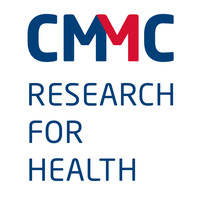Chimeric antigen receptor (CAR) engineered T cells showed spectacular efficacy in the treatment of hematologic malignancies by recognizing tumor cells with pre-defined antibody specificity. Immune-suppression and/or deviation by the tumor microenvironment and down-regulation or losing antigen expression, however, are major hurdles of CAR T cell therapy resulting in tumor relapse by antigen-loss cancer cells as seen by the increasing number of CD19-negative relapses after treatment with CD19 CAR T cells. Moreover, primarily antigen-heterogeneous tumors are generally hard to target by CAR T cells as it is frequently the case in solid cancers. To address the situation we developed new CAR T cell strategies to modulate the CAR T cell response against antigen heterologous tumor cells:
- (i) Reprogramming the CAR T cell response by IL12-CAR T cells. We inserted a functionally active, single-chain p40-p35 variant of IL12 into the extracellular moiety of the CAR while the CAR remains capable to bind cognate antigen through the scFv and to signal through the CAR intracellular domains upon antigen engagement. T cells engineered with such IL12-CAR specifically engaged the CAR cognate antigen through the anti-tumor scFv, produced pro-inflammatory cytokines and eliminated antigen-positive tumor cells. Strikingly, cytotoxic T cells with IL12-CAR predominantly gained a CD8+CD56+CD62Lhigh phenotype, down-regulated Th2 and upregulated NK and CIK cell associated genes compared to conventional CAR T cells. Functionally, IL12-CAR T cells gained antigen-independent lytic activities in addition to antigen-dependent cytolysis making antigen-heterogeneous tumors accessible to an IL12-CAR T cell attack. IL12-CAR is the first prototype of a hybrid receptor that specifically combines the antigen-redirected activity of a CAR with the T cell maturating activity of a cytokine to tune the T cell function towards the elimination of antigen-heterogeneous tumors.
- (ii) Reprogramming the CAR T cell response by interfering with the CD30-CD30L-axis with bispecific anti-CD30-tumorantigen-CARs. We targeted CD30 during the initiation of a CAR redirected T cell response by an anti-CD30 immunotoxin or anti-CD30 CAR T cells. Assuming that the CD30-CD30L interaction drives freshly activated T cells to limit their immune response by shifting to Th2 reactivity, we designed a CAR that in addition to a cancer recognition domain also harbors a CD30 targeting domain to disrupt the CD30-CD30L interaction on freshly activated lymphocytes. T cells with such combined tumor targeting and “T cell instructing” CAR showed improved cytotoxic activity against CD30 negative, non-hematopoietic cancer cells in vitro and in a mouse model. The data draws a novel concept in adoptive cell therapy based on providing two capacities by a single CAR, one being cancer cell targeting and the other, T cell de-repressing. This is all in order to improve anti-tumor immunity.
